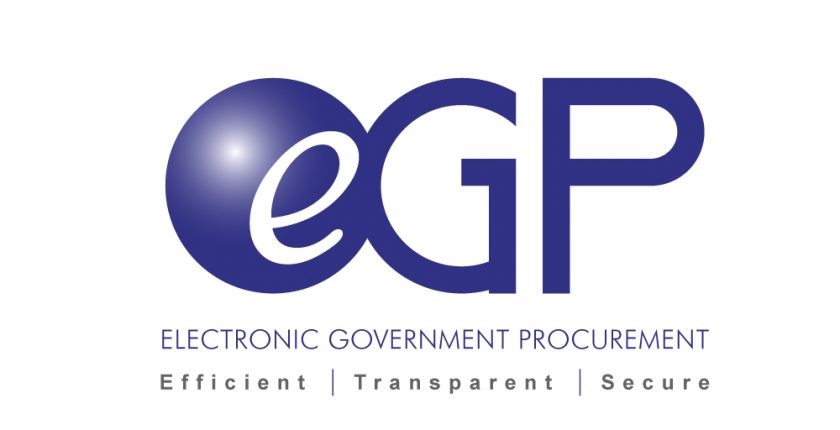As part of the reforms in public Procurement and Disposal management, PPDA in partnership with Ministry of Finance, Planning and Economic Development (MoFPED) and the National Information Technology Authority of Uganda (NITAU) with funding from the World Bank are spearheading plans to harness the potential of new technology through the implementation of the Electronic Government Procurement (eGP). E-procurement is to be piloted in the next Financial Year and envisaged to promote both Transparency and Efficiency in the Public procurement and Disposal transactions.
What is eGP?
e-GP stands for electronic Government procurement. E-Government Procurement system is a web-based system that covers the full procurement lifecycle, all procurement modalities, and keeps a record and audit trail of all procurement activities. The purpose of this system is to maintain efficient, complete and up-to-date public procurement information for all public entities of Uganda. It will also provide tender opportunities to all potential national and international bidders. Through e-GP, PPDA shall be able to pull reports and track progress of procurement and disposal processes of public entities.
The adoption of Electronic Government Procurement (e-GP) is one of the most significant reforms in Public Procurement that is being undertaken by the government of Uganda to revolutionize government operations and consequently improve efficiency in the procurement function.
Benefits of eGP:
When fully implemented, e-GP system will provide a platform for;
- Increasing transparency in procurement procedures and practices;
- Improving efficiency in the procurement process, by minimizing the procurement cycle time, maximizing value for money, and fostering accountability.
- Improving confidentiality, integrity and authenticity of transactions between the procurement entities and the suppliers.
- Developing a common database and electronic trail of procurements to facilitate proper monitoring, reporting and planning of public procurements.
- Increased Compliance through providing a uniform platform that is well guided by the Procurement law of Uganda to be used by all Procuring and Disposing Entities (PDEs).
Piloting Phase:
The eGP shall be piloted in ten (10) selected public entities. These include;
| PILOT ENTITIES | |
| 1. | Uganda National Roads Authority(UNRA) |
| 2. | Public Procurements and Disposal of Public Assets Authority(PPDA) |
| 3. | National Information Technology Authority-Uganda(NITA-U) |
| 4. | Kampala Capital City Authority(KCCA) |
| 5. | Civil Aviation Authority(CAA) |
| 6. | National Social Security Fund, |
| 7. | Ministry of Finance, Planning and Economic Development, |
| 8. | Ministry of Water and Environment |
| 9. | Mpigi District Local Government. |
| 10 | Jinja District Local Government |
Stakeholder Engagement:
The success of the e-government procurement system project largely relies on stakeholder engagement. It’s the people who make or fail systems. “So we are equipping key stakeholders with relevant information on the new system and their role throughout the life- cycle of the project,” notes Mr.Benson Turamye Ag.Executive Director PPDA.
Engagement is currently underway with different stakeholders as follows;
- The Piloting Entities on their role in the implementation of the project.
- The Bidding Community
- The entities that will integrate with the eGP system.
Why Involve the Bidding Community;
Overall, a recent bidders’ readiness analysis revealed a high degree of readiness among the bidders with; 76% of the bidders having internet access, 78% of the bidders reported having access to computer and 76% of the bidders reported that their staff were computer literate.
This notwithstanding, 61.6% of the bidders said they needed training and sensitization to start using e-procurement systems and 13% reported that they needed internet services in order to start using the e-GP system. This is mainly because:
- Private sector involvement and commitment: suppliers, bidders, contractors and other private sector players are central to the successful implementation of the eGP system. Government entities are going to seek their needs through the online procurement system and Providers will be expected to prepare, submit responsive bids through the online platform. This will therefore require that bidders competently adopt the use of the eGP system.
- Supplier awareness and training; government is aware that the successful use of the system will also largely depend on the knowledge and skills of the users to effectively use the system. And as such, the implementing agencies have developed a training plan through which suppliers are going to be trained at selected points within the Country and these will be communicated at a later stage within this year to bidders involved in government procurement.
As we go through the transition from manual to automated procurement processes, the bidding community is crucial to the successful implementation of the eGP, and expected to use the system and provide bidder experience that will be important for system refinement. The government of Uganda through the implementing agencies is committed to supporting bidders starting with sensitisation, training and capacity building.


1 comment
Nice article.